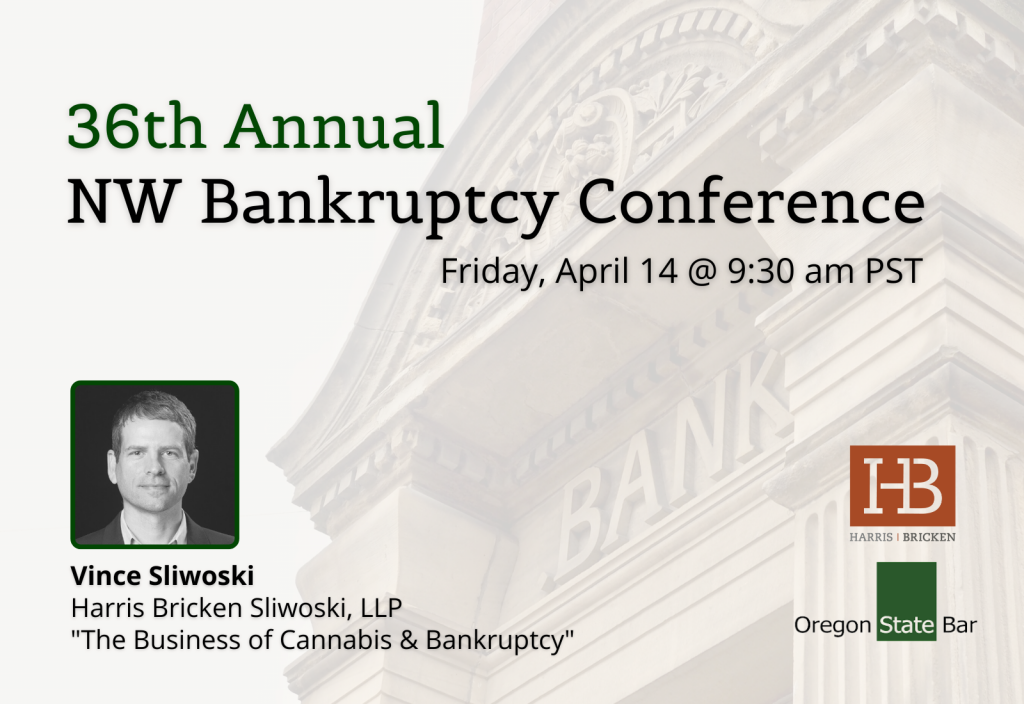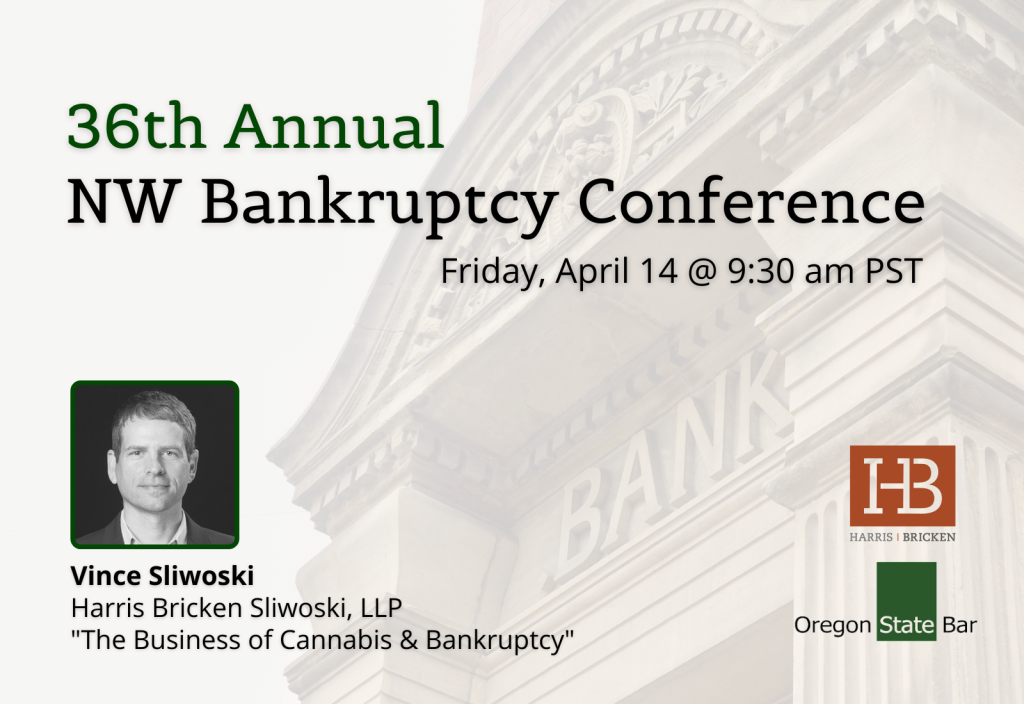
Harris Bricken’s Vince Sliwoski (Portland) will present in-person next Friday, April 14 at the 36th annual Northwest Bankruptcy Institute. Vince will be joined by Dominque Scalia of DBS Law (Seattle) as they cover “The Business of Cannabis and Bankruptcy.”
This event is co-sponsored by sections of the Oregon State Bar and Washington State Bar. Details on the two-day gathering, including registration and CLE credit information, can be found here.
Cannabis and insolvency — including potential bankruptcy relief for adjacent businesses — is a timely topic. One unfortunate reason is the struggles of regulated cannabis entities nationwide, and particularly in the western states. A second reason is the development of case law relevant to cannabis and insolvency. (See yesterday’s post by Jihee Ahn, for example: New Opinion Confirms Growing Trend Away from ‘Zero Tolerance’ Cannabis Bankruptcy Relief Policy.”)
If you’re a business lawyer or litigator in Oregon or Washington — especially one focused on debtor-creditor work, or the cannabis industry — we encourage you to visit the downtown Portland Hilton on April 14 for this presentation by Dominique and Vince.
In the meantime, check out our recent webinar on Distressed Cannabis Businesses, or any of the following posts:
Read full article on HarrisBricken




































